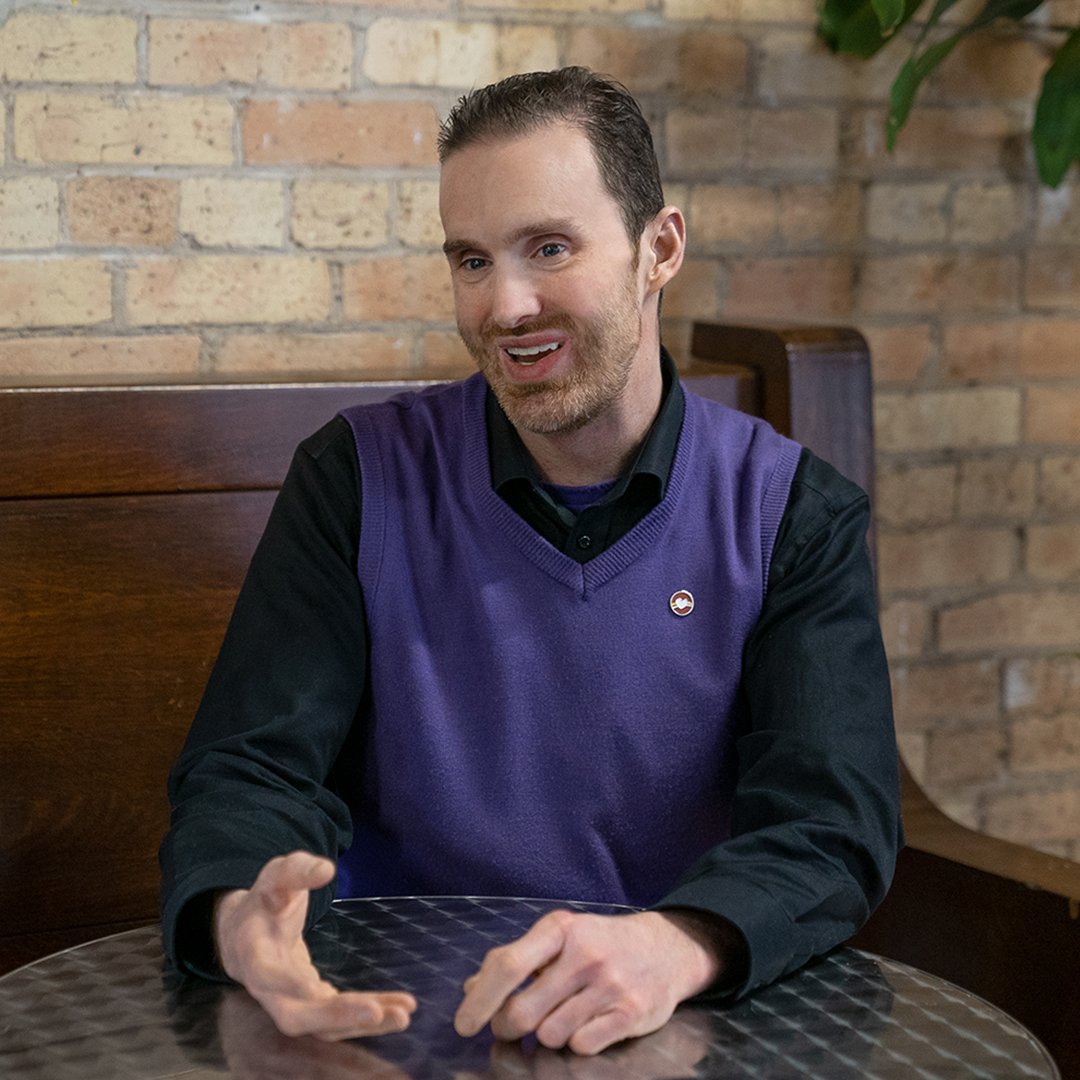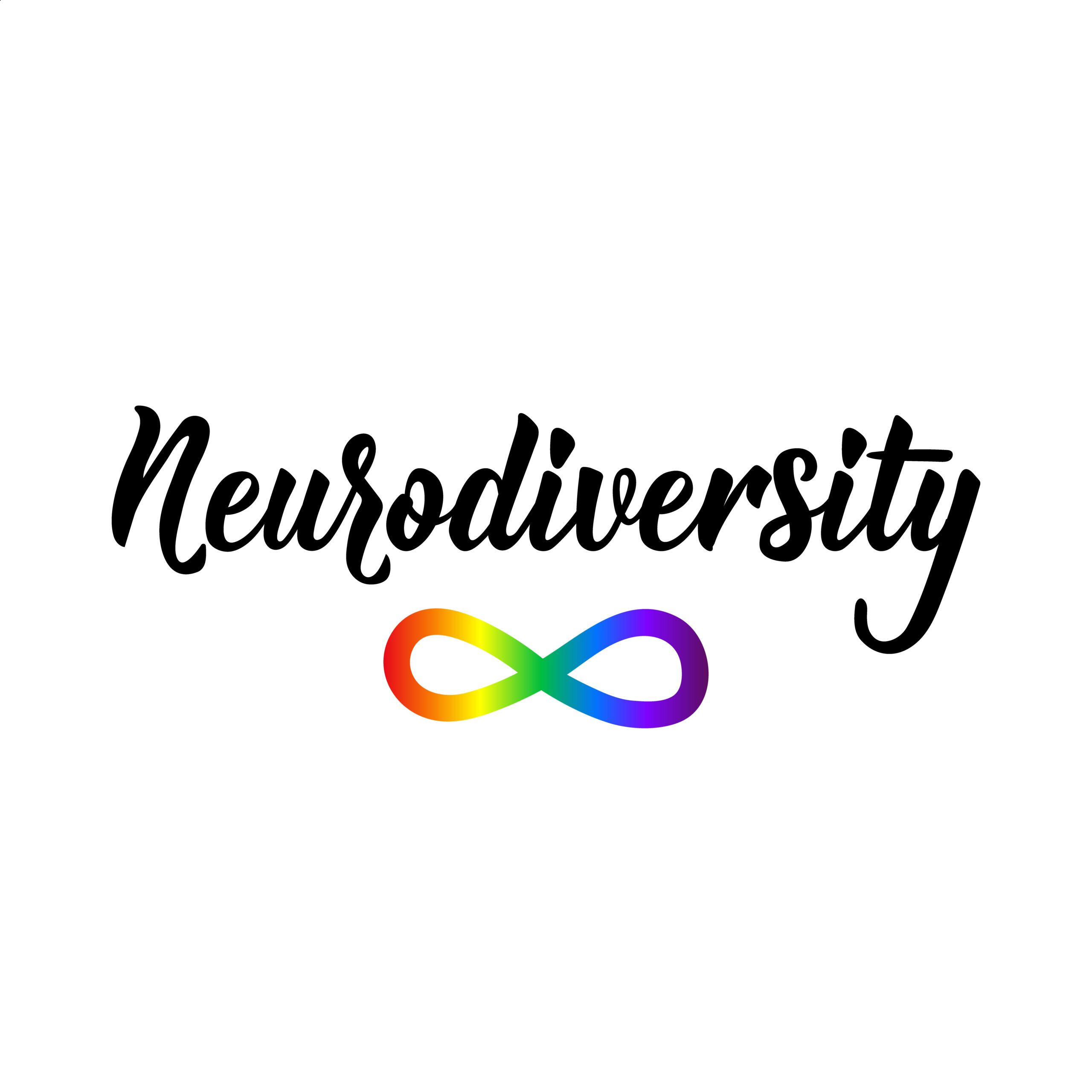April is World Autism Acceptance Month, an annual opportunity for more focused conversations around autism spectrum disorder. This month is also about increasing acceptance of autistic individuals – not only in society, but in the workplace.
While HR leaders now are aware of the advantages that organizations can gain from hiring employees with diverse educational, gender, racial and cultural backgrounds, the benefits of neurodiversity – the range of differences in thinking and behaviour – are less understood.
HRPA staff discussed the benefits of neurodiversity, barriers to organizational change and accommodation strategies with neurodiversity experts, David Moloney, Radha MacCulloch and Sydney Elaine Butler.
Though neurodiversity can bolster a company’s ability to innovate and problem-solve, many people with neurodevelopmental differences (like those on the autism spectrum) face less-than ideal experiences in the workforce.
“When I first entered the workforce, companies often lacked any understanding of either recruiting neurodivergent job applicants and/or supporting this group,” says David Moloney, a self-advocate who is on the autistic spectrum, Mutual Fund Indexer at CIBC, and board member at Autism Ontario.
“Such misunderstandings often lead to either underemployment or, sadly, unemployment for these individuals. For example, when I was diagnosed as having Aspergers Syndrome (a form of autism among those who are slightly higher functioning but have an ASD diagnosis), the options for suitable employment at the time were either retail or simplified office work.”
To begin creating a positive experience for employers and neurodivergent employees requires a shift in perspectives and behaviours.
1. Benefits of a Neurodiverse Workforce:
There are numerous benefits of hiring neurodiverse people. In fact, because they think differently, people with autism often bring new perspectives to an organization. “We know that companies that hire inclusively tend to be more innovative. And companies that are more innovative tend to be more resilient,” says Radha MacCulloch, National Director of the Employment Recovery Project at Inclusion Canada.
“In my work with READY, WILLING & ABLE (RWA), we see that companies that hire neurodiverse talent tend to have leadership and management that are more engaged and committed because employees can see a company that’s willing to tap into the talents of different people.”
According to statistics collected from RWA, a program that connects employers with neurodiverse talent, 99% of businesses rated employees hired through RWA as better than average on creating a positive workplace morale. Compared to their colleagues, 94% of persons hired through RWA rated better on average on attendance. Check out more stats on hiring neurodivergent talent here.
Sydney Elaine Butler, Human Resources Consultant at TotallyHR and an Accessibility Activist and Implementer, also pointed out another benefit of hiring neurodivergent talent: increased productivity and focus.
Some autistic individuals like to dedicate their time to one specific interest or project– a benefit for employers looking for specialists or employees that enjoy repetitive tasks. “I focus on accessibility – that’s what I’m passionate about. I can spend hours helping companies with research on accessibility,” says Butler.
However, while it is important to assess the benefits of neurodiverse talent, it’s key to remember that, “No two people are the same,” says Butler. “Autistic individuals are not the same. Each employee should be considered for the unique experiences and contributions they offer as an individual.”
2. Barriers to Organizational Change:
Considering all the benefits of a neurodiverse workforce, why is neurodiverse talent still overlooked?
It starts with attitudinal barriers, bias, discrimination, and fears around neurodiversity. Many organizations adopt inflexible hiring, retention and training practices.
“Many corporate structures are modelled without a neurodivergent candidate in mind,” says Moloney. For example, traditional interview questions like, “What is your weakness,” will likely be interpreted and answered quite literally and bluntly without decoding what is really being asked in that question.
“Many individuals on the autism spectrum process information and communicate in different ways so a typical interview setting can sometimes obscure a candidates’ qualifications, skills and overall fit for the role,” MacCulloch adds.
Along the same lines are job postings, which includes language that is often unclear to individuals on the autism spectrum. “A lot of companies can be very vague on employee expectations,” says Butler. “So many neurodivergent employees miss out because they don’t fit into this little box.”
Sometimes typical social cues are not understood by employees with autism. “People on the spectrum can misinterpret workplace signals leading to workplace issues,” says Moloney. “It’s through such situations that people on the autism spectrum have benefitted from supportive staff and/or managers who work towards ensuring such situations are avoided in the future.”
3. Accommodation:
The word accommodation is often associated with inconvenience. There is this idea that employers need to radically restructure their business to accommodate the needs of a few individuals.
To a certain extent, some adjustments do need to be made for some employees with autism. “Many autistic individuals have some sensory sensitivities. For example, It’s hard to focus in loud settings so noise cancelling headphones can be used when working in these environments,” says Butler.
When it comes to hiring, HR leaders should consider alternative methods for evaluating skills. This can include job shadowing and/or work trials where hiring managers can assess if a candidate is a good fit in a practical way. Employers can also leverage job coaching, a government funded resource that provides career guidance for people living in Ontario.
Moloney, who has worked for 13 years with CIBC, also believes that HR need to seek out “more educational opportunities, events and volunteer experiences with accredited institutions and community leaders.” For example, his fellow colleagues at CIBC are able to participate in educational opportunities that cover best practices for accommodating neurodivergent employees – something that’s greatly enhanced Moloney’s employee experience.
The Inclusive Workplace, a newly launched resource and training hub to support inclusive hiring, provides downloadable tools and resources to help businesses connect and accommodate employees on the autism spectrum.
But nothing beats talking to your employees on the autism spectrum and other neurodivergent people to ask how they would like to be accommodated. “You have to have a conversation with your neurodivergent employees, even during COVID-19 when they may be working remotely,” says Butler. “What one person needs to succeed may be very different to what another person needs to succeed.”
At the end of the day, workplace accommodations benefit all employees. “I mean we’ve already started accommodating employees during the pandemic with remote working,” says MacCulloch. “It’s all about the principle of universal design. Like using plain language, avoiding jargon, ensuring readability in your communications are just some examples of creating an accessible workplace that helps not just employees on the autism spectrum but your busy employees that don’t have the time to read through pages of complex language or employees that consider English their second language.”
Bottomline: To yield the benefits of a neurodiverse workforce takes intention and time, but the tradeoff is well worth it. After all, it is not just neurodivergent people that miss out on opportunities, but employers who miss out on a largely untapped pool of qualified candidates.
Additional Links and Resources:
- Autism Canada
- Autism Ontario
- Autism Ontario Employment Resources
- Autism Speaks
- Autism, Identify and Employment
- Canadian National Autism Foundation
- Center for Autism Research: Workplace Accommodations and Supports for Autistic Individuals
- Harvard Business Review: Neurodiversity as a Competitive Advantage
- Insperity: Five Ways to Embrace Autism in the Workforce
- Job Accommodation Network
- Ontario Disability Support Program – Employment Supports
- Orbital Learning: The Importance of Autism Awareness Month for Employers
- Organization for Autism Research
- READY, WILLING & ABLE
- Spectrum News: Now hiring: What autistic people need to succeed in the workplace
- The Inclusive Workplace
- University of Calgary Research: What do we know about improving employment outcomes for individuals with autism spectrum disorder?
Related Webinars:
Interviewee Bios:

Sydney Elaine Butler
Human Resources Consultant, TotallyHR and Accessibility Activist and Implementer
I am an Accessibility Activist, Speaker and Implementer. This is because it is important for everyone to have access to resources and be able to have opportunities regardless of who they are and where they come from without physical and non-physical barriers. I am committed to aiding in the removal of these barriers and educating people about how to adequately go about the removal of these barriers. I have implemented Diversity and Inclusion policies and procedures for the Girl Guides of Canada to help the attract and retain diverse members and trained members on how to implement diversity strategies at a front-line level. I am a recent graduate from Sheridan College from the BBA-HR stream. The next adventure I just started is as an Human Resources Consultant at TotallyHR (New Startup) to help businesses increase their ROI by solving key HR problems in businesses right now, and the importance of having accessible and inclusive initiatives.

Radha MacCulloch
National Director of the Employment Recovery Project, Inclusion Canada
Radha MacCulloch is the National Director of the Employment Recovery Project, a partnership initiative between Inclusion Canada and the Canadian Autism Spectrum Disorder Alliance (CASDA). The Employment Recovery Project is an initiative aimed at improving workplace inclusion for persons on the autism spectrum or with an intellectual disability through addressing critical hiring and support needs that have emerged in response to COVID-19 and works in collaboration with Ready, Willing and Able.
Radha completed her Master of Social Work at the University of Toronto and her Bachelor of Social Work at McGill University.
Radha is now working towards her doctorate in the School of Social Work through McGill University in Montreal, Quebec. Her research explores how the meaningful transition to adulthood for young people with neurodisabilities is negotiated in service delivery.

David Moloney
Mutual Fund Indexer, CIBC and board member, Autism Ontario
David Moloney has been working for CIBC since May 2007. Thanks to his ongoing commitment to the inclusion and diverse beliefs of the bank David has also volunteered with the CIBC WorkAbility Employee Network, a support group of CIBC employees with disabilities and their supporters who advocate for the removal of all barriers in the workplace. During his time with WorkAbility David has been involved in the following:
-Meeting and/or introducing many leaders in the disability community including retired Paralympians, Politicians, and Legal Advocates.
-Participating in a variety of external events such as numerous Conferences, Job Fairs, Development Services Ontario events, Spectrum Works, and represented CIBC at both the Flag Raising for World Autism Awareness Day and the International Day for the Person With A Disability.
-Been featured by CIBC through both internal and external media stories (including CTV News, City News, and The Toronto Star, to name a few).
Through all of his work David remains a passionate supporter of the Autism Community. Since first becoming involved with the Aspergers Society of Ontario in 2001 David has never ceased to believe in the vital nature of what a person on the autism spectrum can do (up to and including working in senior ministries in Government).

Sydney Elaine Butler
Human Resources Consultant, TotallyHR and Accessibility Activist and Implementer
I am an Accessibility Activist, Speaker and Implementer. This is because it is important for everyone to have access to resources and be able to have opportunities regardless of who they are and where they come from without physical and non-physical barriers. I am committed to aiding in the removal of these barriers and educating people about how to adequately go about the removal of these barriers. I have implemented Diversity and Inclusion policies and procedures for the Girl Guides of Canada to help the attract and retain diverse members and trained members on how to implement diversity strategies at a front-line level. I am a recent graduate from Sheridan College from the BBA-HR stream. The next adventure I just started is as an Human Resources Consultant at TotallyHR (New Startup) to help businesses increase their ROI by solving key HR problems in businesses right now, and the importance of having accessible and inclusive initiatives.

Radha MacCulloch
National Director of the Employment Recovery Project, Inclusion Canada
Radha MacCulloch is the National Director of the Employment Recovery Project, a partnership initiative between Inclusion Canada and the Canadian Autism Spectrum Disorder Alliance (CASDA). The Employment Recovery Project is an initiative aimed at improving workplace inclusion for persons on the autism spectrum or with an intellectual disability through addressing critical hiring and support needs that have emerged in response to COVID-19 and works in collaboration with Ready, Willing and Able.
Radha completed her Master of Social Work at the University of Toronto and her Bachelor of Social Work at McGill University.
Radha is now working towards her doctorate in the School of Social Work through McGill University in Montreal, Quebec. Her research explores how the meaningful transition to adulthood for young people with neurodisabilities is negotiated in service delivery.

David Moloney
Mutual Fund Indexer, CIBC and board member, Autism Ontario
David Moloney has been working for CIBC since May 2007. Thanks to his ongoing commitment to the inclusion and diverse beliefs of the bank David has also volunteered with the CIBC WorkAbility Employee Network, a support group of CIBC employees with disabilities and their supporters who advocate for the removal of all barriers in the workplace. During his time with WorkAbility David has been involved in the following:
-Meeting and/or introducing many leaders in the disability community including retired Paralympians, Politicians, and Legal Advocates.
-Participating in a variety of external events such as numerous Conferences, Job Fairs, Development Services Ontario events, Spectrum Works, and represented CIBC at both the Flag Raising for World Autism Awareness Day and the International Day for the Person With A Disability.
-Been featured by CIBC through both internal and external media stories (including CTV News, City News, and The Toronto Star, to name a few).
Through all of his work David remains a passionate supporter of the Autism Community. Since first becoming involved with the Aspergers Society of Ontario in 2001 David has never ceased to believe in the vital nature of what a person on the autism spectrum can do (up to and including working in senior ministries in Government).
